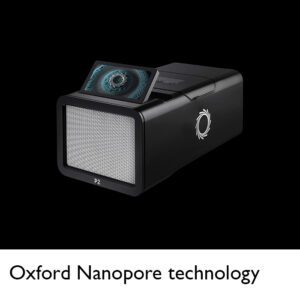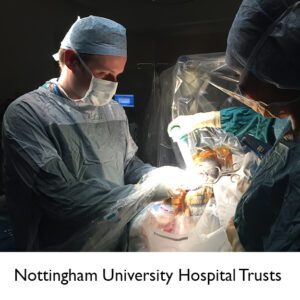 A team of scientists and medics have developed a new genetic test which can diagnose brain tumours in as little as two hours.
A team of scientists and medics have developed a new genetic test which can diagnose brain tumours in as little as two hours.
The ROBIN test, developed at the University of Nottingham, would cut down the waiting times for a diagnosis significantly from 6-8 weeks with current methods.
The research, published on Wednesday (21 May) in the journal Neuro-Oncology, found that the test achieved 100% success rate in providing a diagnosis for 50 brain tumours during brain surgeries. The results came within two hours and classified the tumours within minutes.
The test works using ‘nanopore sequencing’, a technique moving DNA through microscopic holes in a membrane to detect changes in flow.
“We can do more for patients”
Cancer Research UK estimates that there are around 12,000 diagnoses of brain tumours a year.
Brain tumours are a cause of epilepsy, with seizures affecting up to two in three people with a brain tumour, according to The Brain Tumour Charity.
 Mr Stuart Smith, neurosurgeon from the School of Medicine at Nottingham University Hospitals NHS Trust, was lead surgeon on the project. He said traditional processes of diagnosis are “slow and expensive”.
Mr Stuart Smith, neurosurgeon from the School of Medicine at Nottingham University Hospitals NHS Trust, was lead surgeon on the project. He said traditional processes of diagnosis are “slow and expensive”.
He continued: “Now, with this new technology we can do more for patients because we can get answers so much more quickly which will have a much bigger influence on clinical decision making, in as little as two hours.
“Patients find waiting many weeks for results extremely difficult and this adds to the anxiety and worry at what is already a very difficult time.
“This type of operation can be quite long, so potentially, a surgeon could be informed during surgery of the accurate diagnosis, which would then impact on the surgical strategy.”
While this brain tumour test may not greatly impact the risk of seizures linked to brain tumours, it could still hold some benefits.
Mr Smith explained: “The nanopore test may reduce the need for second operations which may be beneficial in reducing disturbance to the brain (and hence may have a positive impact on seizures) and will reduce time to radiotherapy for certain tumour types which may also allow less opportunity for seizures in the gap between surgery and radiation.”
The research team is hoping to launch more testing across other NHS Trusts across the UK.
You can access the full study on the Neuro-Oncology website.
More articles







